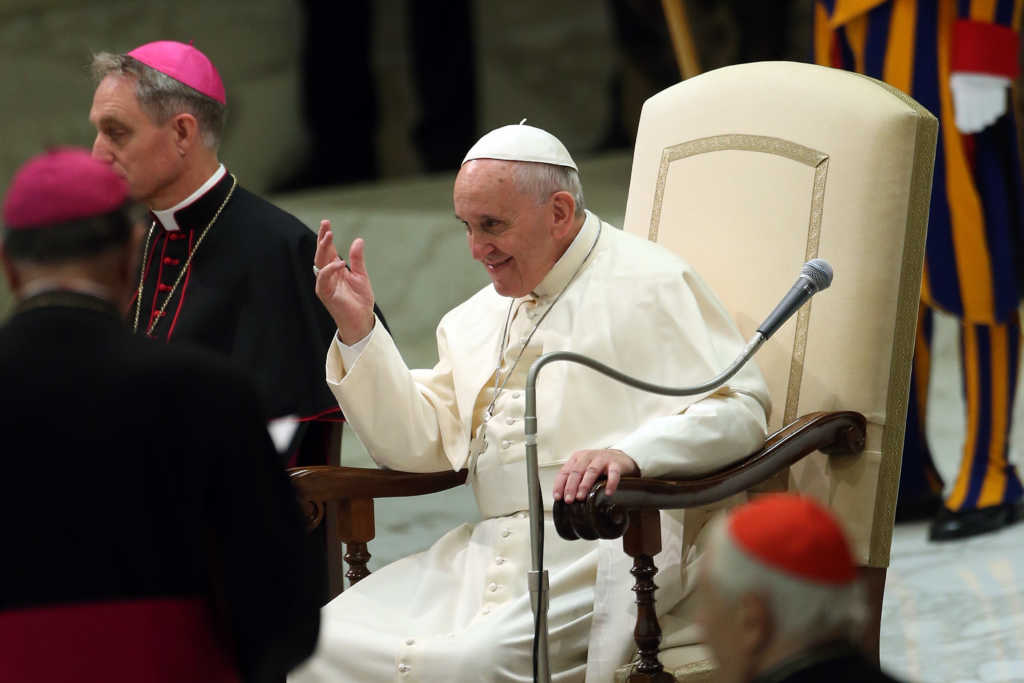Last week, the Vatican Observatory hosted a conference that drew some of the world’s foremost scientists and cosmologists. Titled, “Black Holes, Gravitational Waves and Space-Time Singularities,” the three-day summit honored the fiftieth anniversary of the death of Monsignor George Lemaitre, a Jesuit priest, physicist, and mathematician, who is considered to be one of the fathers of the big-bang theory.
Did Crocodiles Really Eat a Pastor Who Was Trying to Walk on Water Like Jesus?
The Vatican Observatory was founded in 1891 by Pope Leo XIII to dispel the notion that the Catholic Church was anti-science. Today, Jesuit Brother Guy Consolmagno serves as director of the site, which is located outside Rome at the papal summer residence in Castelgandolfo, Italy.
“The Vatican Observatory was founded… to show that the Church supports good science,” Consolmagno told Crux. “To do that we have to have good science.”
During a press conference in early May, Jesuit Father Gabriele Gionti, the organizer of the conference, spoke about the importance of mending the perceived rift between the scientific and religious ways of thinking, for one actually complements the other.
“This fear of science people talk about is a myth,” Gionti said. “Lemaitre always made a distinction between the beginnings of the universe and its origins. The beginning of the universe is a scientific question, to be able to date with precision when things started. The origins of the universe, however, is a theologically charged question… [that] has nothing at all to do with a scientific epistemology.”
With that in mind, Consolmagno argues that believers who simply write off the big-bang theory as a cosmic incident that was caused by God are failing to recognize the true scope of the event.
“If you look at God as merely the thing that started the big-bang, then you get a nature god, like Jupiter throwing around lightning bolts,” he said. “We must believe in a God who is supernatural… We recognize God as the one who is responsible for existence, and our science tells us how he did it.
Stephen Hawking said that he can explain God as a fluctuation in the primordial gravity field,” he continued. “If you buy that, it means God is gravity… maybe that’s why Catholics celebrate Mass!”
According to the Vatican, the goal of the conference was to “encourage interaction among the participants, between theory and observation, and to a stimulating and thought-provoking environment for new ideas.” In keeping with the theme, Consolmagno’s ultimate hope is that scientists around the globe who believe in God become more comfortable sharing their work with fellow believers.
“More scientists who are church-goers need to make their science known to their parishioners,” he said. “They should set up their telescopes in the church parking lot, or lead natural trails for youth groups. People in churches need to be reminded that science was an invention of medieval universities founded by the church, and that the logic of science comes out of the logic of theology.”
(H/T: Crux)
—
Other Must-Read Stories:
– Kirk Cameron Warns ‘We’ll Destroy Each Other’ If Americans Don’t Take These Key Steps
– Did Crocodiles Really Eat a Pastor Who Was Trying to Walk on Water Like Jesus?
– Comedian Chris Rock Reveals Past Porn Addiction and the Negative Impact It Had on His Life


